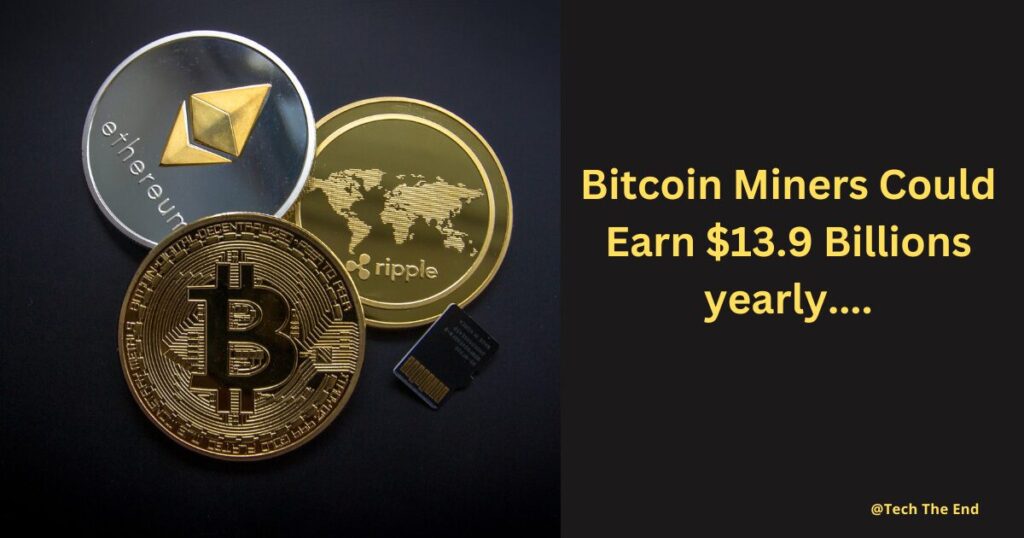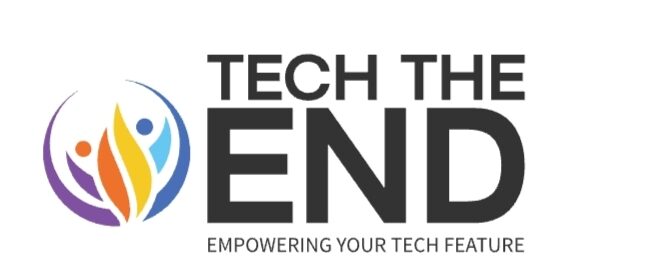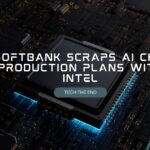According to investment firm VanEck the firm suggests that by 2027, Bitcoin Miners Could Earn $13.9 Billions yearly, Bitcoin miners can significantly increase their revenue by investing part of their energy capacity in artificial intelligence and high-performance computing (HPC). But they will have to invest 20% of their energy in these areas, A report published on Friday, August 16, 2024, states that bitcoin miners are struggling due to a lack of operational stability in their operating expenses and stability in bitcoin prices. AI and HPC can help miners stabilize their financial situation by diversifying operations.

AI companies need energy, and bitcoin miners have energy,” the report states. Kerrisdale Criticizes Bitcoin Miners, VanEck Sees Opportunity in AI Partnerships, This suggestion comes at a time when the Bitcoin mining industry is facing criticism due to its impact on energy consumption. Recently, investment firm Kerrisdale Capital said unfavorable things about Bitcoin miners; they called these firms an ‘industry of snake oil sellers’, pointing out that the business models of these firms are not sustainable in the present times. For example, Sahm Adrangi, Chief Investment Officer of Kerrisdale Capital, indicated that most Bitcoin mining companies offer shares in an attempt to raise funds to support their operations. Still, they do not provide the required returns.
Introducing 99Bitcoins: – A New Crypto Project
Enter 99Bitcoins, the latest project that promises to redefine how we interact with digital currencies. Whether you’re a seasoned trader, a curious investor, or someone just starting their crypto journey, 99Bitcoins offers tools, resources, and insights to help you navigate the complex world of blockchain technology with confidence. Designed with user-friendliness and innovation at its core, 99Bitcoins aims to be a one-stop destination for all things crypto. Join us as we explore the potential of this groundbreaking platform.
emerging player in the crypto space, 99Bitcoins, exemplifies how new projects can intersect with established practices. While 99Bitcoins primarily focuses on providing educational resources and tools for cryptocurrency enthusiasts, it also highlights the broader potential for innovative projects within the crypto ecosystem. As more Bitcoin miners consider diversifying their operations, projects like 99Bitcoins may benefit from the expanded infrastructure and technological advancements driven by the integration of HPC data centers. This synergy could foster a more robust and interconnected crypto industry, where education, mining, and high-performance computing coexist and thrive.
Profitability and Costs of HPC Data Centers-
Now valued at $19 billion, helps Core Scientific make substantial profits. McAvity highlighted that long-term contracts with high-profile companies make hosting HPC data centers highly lucrative. The price per kilowatt-hour for HPC leases can range from 50 cents to a dollar, significantly higher than the 5-10 cents per kilowatt-hour from Bitcoin mining, resulting in tenfold revenue increases.
However, not all Bitcoin miners can adopt this model due to its challenges and costs. Russell Cann, Chief Development Officer at Core Scientific, emphasized the volatility of Bitcoin mining compared to the stable high margins of HPC. He noted the significant capital required for HPC data centers: building a quality Bitcoin mine costs about $1 million per MW, whereas an HPC data center filled with GPUs can cost between $35 million to $60 million per MW.
As energy consumption in AI and HPC increases in the future, miners will be able to provide additional value by using that energy to support their operations, thereby improving their financial position. With a portion of energy resources transferred, they can not only avoid the high risks related to Bitcoin fluctuations but also benefit from the AI and HPC industries.
High-Performance Computing (HPC) data centers are designed to handle complex computational tasks that require significant processing power, memory, and storage. To meet the demanding needs of HPC applications, these data centers must adhere to specific requirements across various dimensions. Here’s a breakdown of the key requirements for HPC data centerszsaq1
Specific Requirements for HPC Data Centers
1) Power and Cooling –
High Power Density- HPC systems consume a lot of power, often measured in kilowatts per rack. Data centers must have robust power infrastructure to support this demand.
Efficient Cooling Solutions- Advanced cooling techniques, such as liquid cooling, immersion cooling, or direct-to-chip cooling, are often necessary to maintain optimal temperatures and prevent overheating.
- Scalability –
Modular Design-: The ability to scale computational resources as needed is critical. Modular data center designs allow for easy expansion of both compute and storage capacity.
High Network Bandwidth: HPC workloads often involve large data transfers. High-speed interconnects like InfiniBand or 100Gb Ethernet are essential to minimize latency and maximize throughput.
- Storage –
High-Performance Storage Systems- HPC workloads generate and process massive amounts of data. Storage systems must offer high I/O throughput, low latency, and large capacity.
Parallel File Systems: Technologies like Lustre or GPFS (IBM Spectrum Scale) are commonly used in HPC environments to manage large-scale data with high efficiency.
- Compute Resources –
Advanced Processors and Accelerators- HPC data centers require cutting-edge CPUs, GPUs, and specialized accelerators (like FPGAs or TPUs) to handle complex computations.
Resource Optimization- Techniques like load balancing, job scheduling, and resource allocation are vital to maximize the utilization of compute resources.
- Network Infrastructure –
Low-Latency Networks:- HPC applications often require real-time data exchange between nodes. Low-latency networking is crucial for minimizing communication delays.
Redundancy and Resilience:- The network must be designed with redundancy to ensure continuous operation, even in case of component failures.
- Security –
Data Protection- Given the sensitive nature of data processed in HPC environments, robust encryption access control, and authentication mechanisms are necessary.
Physical Security- Strict access controls, surveillance, and secure facilities are required to protect the physical infrastructure.
- Management and Monitoring –
Advanced Monitoring Tools- Continuous monitoring of power usage, cooling efficiency, network traffic, and compute performance is essential for maintaining optimal operation.
Automation and Orchestration- Automation tools help manage complex HPC environments by automating routine tasks and orchestrating workloads across the data center.
- Sustainability –
Energy Efficiency:- HPC data centers must focus on reducing their carbon footprint by adopting energy-efficient technologies and practices.
Renewable Energy Sources- Wherever possible, integrating renewable energy sources like solar or wind power can help reduce operational costs and environmental impact.
- Compliance and Standards –
Regulatory Compliance:- HPC data centers must adhere to industry regulations and standards, such as ISO/IEC 27001 for information security management.
Industry Best Practices:- Following best practices for data center design and operation, as outlined by organizations like the Uptime Institute, ensures reliability and efficiency.
Future of HPC Data Centers for Bitcoin Miners.
While some Bit coin mining sites meet the necessary requirements, can believes many will not transition to HPC data centers due to the substantial infrastructure and resources needed. Core Scientific, with 1200 MW of contracted power divided between Bitcoin mining and HPC, is evaluating new locations to support both operations.
What is Cryptocurrency ?
Cryptocurrency, often referred to simply as “crypto,” is a digital or virtual form of currency that uses cryptography for security. Unlike traditional currencies issued by governments (like the U.S. dollar or the Euro), cryptocurrencies operate on a technology called blockchain and are typically decentralized, meaning they are not controlled by any central authority such as a government or financial institution.
Types of Cryptocurrencies.?
Bitcoin (BTC):- The first and most well-known cryptocurrency, created in 2009 by an anonymous person or group known as Satoshi Nakamoto. Bitcoin is often referred to as digital gold due to its scarcity and value.
Altcoins:- Any cryptocurrency other than Bitcoin is referred to as an altcoin. Popular altcoins include Ethereum (ETH), which supports smart contracts and decentralized applications (dApps), and Litecoin (LTC), which offers faster transaction times.
Stablecoins:- These are cryptocurrencies designed to maintain a stable value, usually pegged to a fiat currency like the U.S. dollar. Examples include Tether (USDT) and USD Coin (USDC).
Use Cases of Cryptocurrency ?
Digital Payments:- Cryptocurrencies can be used to make peer-to-peer payments without the need for intermediaries like banks. This can reduce transaction fees and speed up cross-border transfers.
Smart Contracts :- Platforms like Ethereum allow for the creation of smart contracts, which are self-executing contracts with the terms directly written into code. These contracts automatically enforce agreements when predefined conditions are met.
Decentralized Finance (DeFi) :- DeFi refers to a movement that aims to recreate traditional financial systems (like lending, borrowing, and trading) using blockchain technology without intermediaries.
Non-Fungible Tokens (NFTs) :- NFTs are unique digital assets that represent ownership of a specific item or piece of content, such as art, music, or virtual real estate, on the blockchain.
Tech the end……






